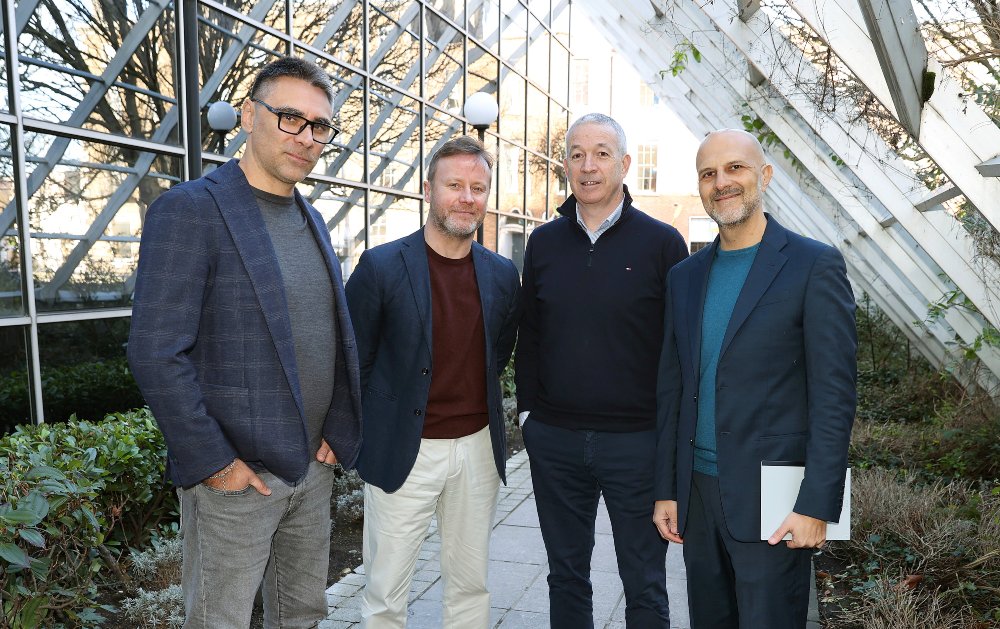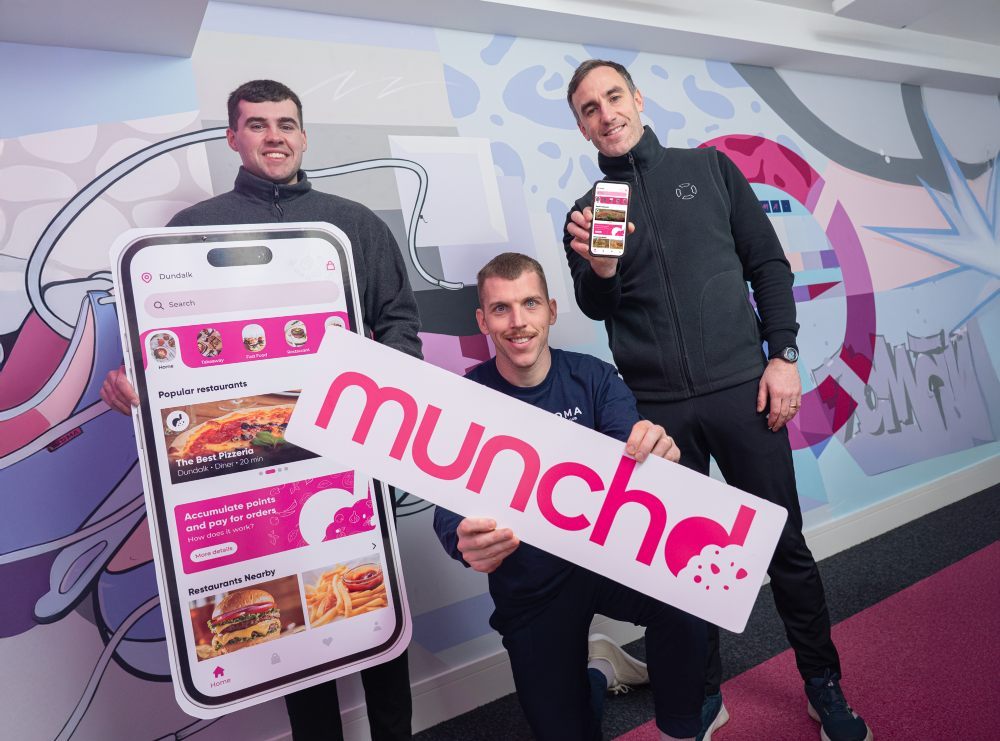San Francisco-based AI entrepreneur Ray Fitzgerald is part of a growing community of Irish tech entrepreneurs building start-ups in Silicon Valley. He talks about how his Lucid app will help writers and other creative professionals keep their quills sharp in the AI age.
Whether you like it or not, the AI (artificial intelligence) age is upon us. And, whether you fear for your professional future or not, the reality is that – whether you are a creative professional, an accountant or an architect or whatever – you ought to by now from the plethora of apps in existence, have found a way to make AI work for you.
The brainchild of Cork native Ray Fitzgerald, Lucid is a platform that aims to solve the disconnect between AI and document creation workflows.
“Lucid is a complete rethink of the word processors that people use every day”
Having developed the app while working in San Francisco with another Irish-led start-up Inscribe, Fitzgerald explains that currently writers must switch between their documents and AI tools which can be disruptive to the creative process.
Build fast, iterate fast
Lucid founder and creator Ray Fitzgerald
Describing his creation as a “rethink of the word processor”, he views the market for his Lucid app as substantial, encompassing content writers or anyone who writes professionally or regularly and wants to enhance their work with AI assistance.
Lucid is a sophisticated text editor that integrates AI-powered writing assistance directly into your workflow.
Core features include: Smart Text Transformation (transform selected text using natural language prompts), AI Assistant Integration (chat interface for discussion and a research mode for web-based reference), Autocomplete, Rich Text Editor capabilities, and a modern user experience.
Users can simply select text, press Cmd/Ctrl+K, describe their desired changes, and review suggested edits—all within the same interface.
Having experimented with Lucid it’s fair to say the app packs a punch, not only tidying up language and suggesting elegant rewrites, but also making useful suggestions such as SEO keywords and more from the content created when prompted.
Describing himself as a ‘solo entrepreneur’ , Fitzgerald explains: “I built Lucid in just two weeks while working at Inscribe as a software engineer. It quickly went viral after I launched it on Twitter, and now I’ve quit my job, and I’m pursuing it full-time.”
He plans to secure funding for the app and build a team in San Francisco.
Comparing the start-up ecosystem in San Francisco and that of Ireland, he says: “The contrast between the scene back home and here in San Francisco is stark. I don’t think Lucid would have been the success it’s been if I had built and launched it in Ireland.
“The density of talent and start-ups here is incredible,” he says, pointing out that availability of smart money to back start-ups remains ample in the Bay area compared with Ireland.
“Ireland is full of talent, and I think many Irish people are naturally entrepreneurial. But it lacks the necessary conditions to promote the founding and scaling of great companies. Many of the best Irish-founded companies have had to migrate to the US to find success.”
Setting new standards
Building a business, especially a tech-based business, as a solo entrepreneur can be both liberating and challenging.
“Perfect is the enemy of done. I used to be afraid of launching imperfect products for fear of things breaking, or because they did not meet my own standards. I’ve since learned that most bugs aren’t as bad as you think, and can be easily rectified, and that my own standard for products is typically much higher than the consumer’s. Shipping too late is much worse than shipping too early.”
His solution? “Get things right first, scale second. I’ve seen companies try to remedy fundamental cultural or organisational issues by simply adding more people. This is the opposite of what you want to do. Fix the unit first, then scale those units. Adding more people to a broken system only amplifies the problems.
“Carve your own path. People are obsessed with the ‘standards’ or ‘best practices; on how to build a product or a company. I believe it’s a truly unique path.
“You should learn from others, but don’t blindly follow. Instinct is critical. This kind of thinking is not popular because you can’t sell it. People want to believe in a formula for everything, but it’s not the case.”
His advice for fellow founders? “Ship fast, fail fast, iterate fast. The tech moat is becoming obsolete. Focus on distribution and branding from the outset. This is especially true for distribution. Be wary of doctrines.
“Thinking from first principles is exceedingly more valuable than being a buff on ‘best practices’. This is especially true as the landscape is shifting more than ever before.”
In terms of the competitive AI environment for Lucid, Fitzgerald believes established productivity software brand names have simply “tacked AI on” to existing products.
“Our bet is to utilise the newest AI technologies to do a foundational rebuild of these products. It would have been really hard 20 or 30 years ago to displace Microsoft Word or Google Docs, but now it’s uniquely possible. Lucid is a complete rethink of the word processors that people use every day. We want to make people more productive by taking the drudgery out of their work and enable them to be more creative and do even more valuable work.”
As an Irishman living and working in San Francisco, Fitzgerald says the AI revolution is breathing a new potency into Silicon Valley. “There’s a resurgence. After the Covid era there was definitely a depression in the scene but there’s actually a buzz about the place thanks to the new wave of AI. Prior to Covid there was a sense that people were going around knocking the same doors. But now there’s definitely a renewed excitement around tech because of AI and the market opportunities that are opening up.”
-
Bank of Ireland is welcoming new customers every day – funding investments, working capital and expansions across multiple sectors. To learn more, click here
-
For support in challenging times, click here
-
Listen to the ThinkBusiness Podcast for business insights and inspiration. All episodes are here. You can also listen to the Podcast on:
-
Spotify
-
SoundCloud
-
Apple





